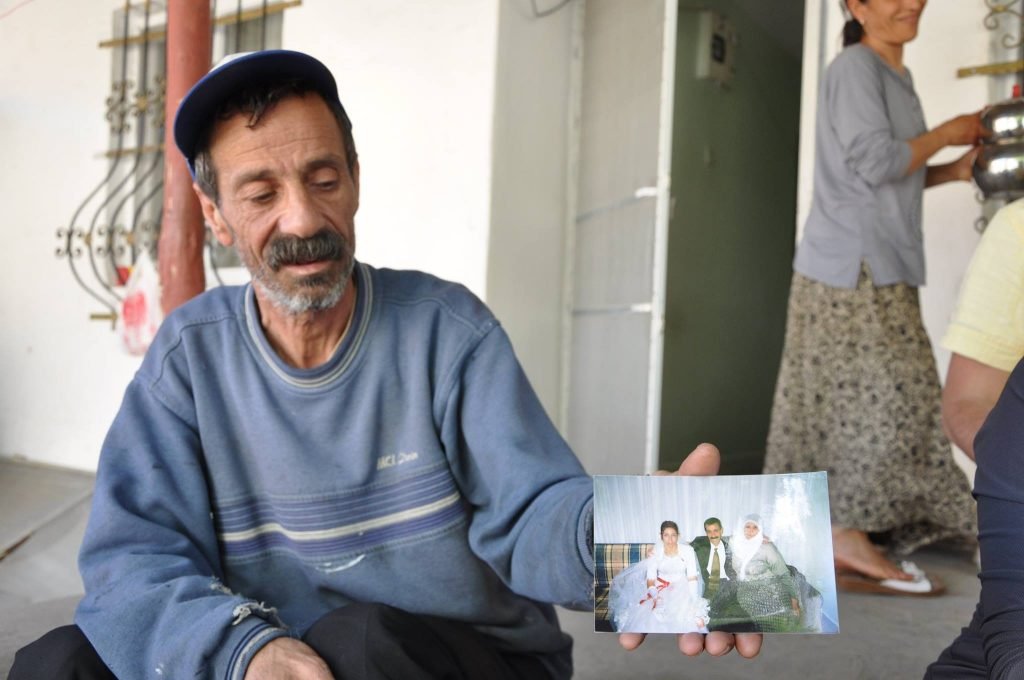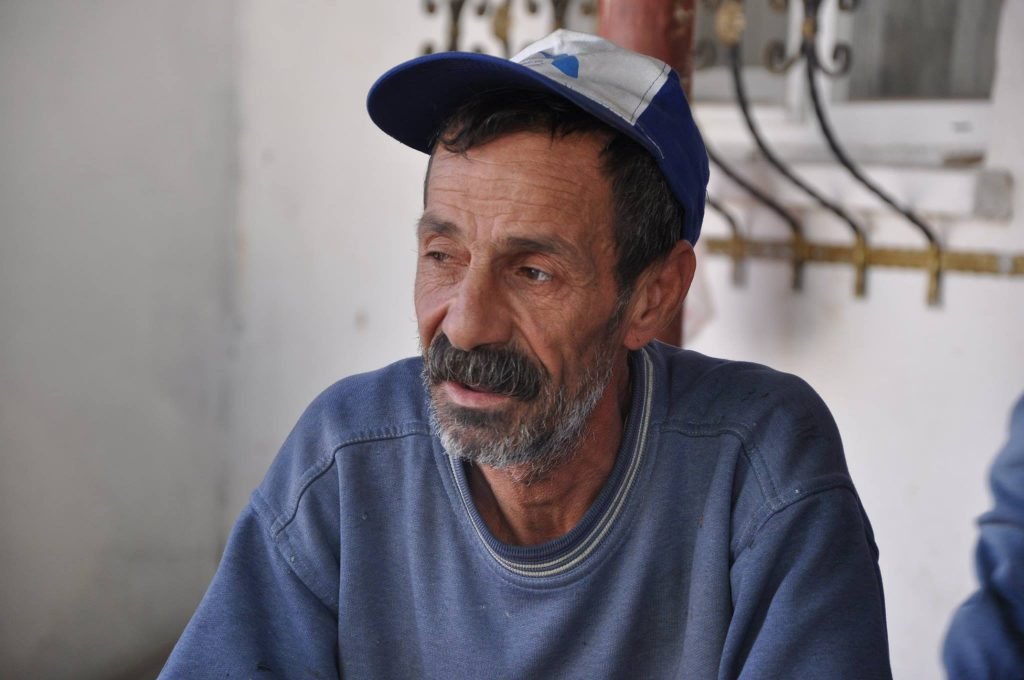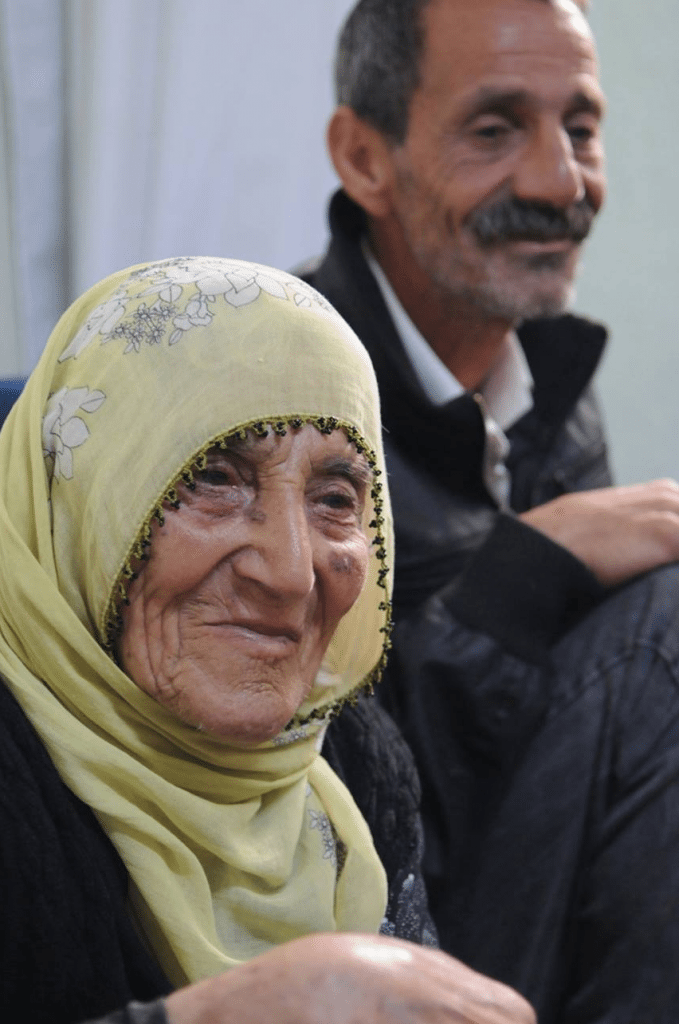The first time we met Recai Altay in 2013, our small group of seven had just walked down from Soorp Garabed church to the town square of Chungush. Somehow, he had heard Armenians were in town and was desperate to speak with us… to tell us the story of his mother-in-law Asiya.

It was a fortuitous meeting that led to a deep friendship with Recai, his family and Asiya, the last Armenian of Chungush.
As a Kurd, Recai had spent 10 years in the infamous Diyarbakir prison during the 1980’s. Last month, he was detained as co-chair of the local Democratic Regions Party (DBP), a sister party to the Pro-Kurdish Peoples’ Democratic Party (HDP).
In the early morning of Nov. 4, a bomb was detonated outside the police station where Recai was being detained. A portion of the building collapsed and Recai was tragically killed.
Below is a letter written to our dear friend Recai.
***
My dear friend,
How will we find the words to replace the ax in our hearts upon hearing the news of your death in yesterday’s bombing in Diyarbakir by the prison where the cowardly swords detained you, and the desperation of the endless chaos that took you away from us… Will any of this matter?
I heard the news today. All I could remember was the hearth in your eyes that you kept warm after all the winters turned to summers in your cell at the notorious Diyarbakir prison that ate your youth, but only steeled your resolve and willpower.

Some try to find what they will become in life. Others just know it and heed the call.
You had no choice.
You were a rebel to the bone. Your eyes never betrayed you. Those quiet, tired, stoic eyes half-dulled by a tortured life of defiance against the evil that men continue to do in our ancestral lands. I will no longer be able to look into your eyes and see the glow as you cradled your only son next to your 101-year-old mother-in-law Asiya, whose acquaintance you blessed us with.
Time will not heal the pain of premature loss.
Who would have thought that Asiya would have to see your death? What is the force of nature that paints our lives with these deadly brushstrokes? How can we imagine Ulas, your beautiful son, hearing that you will not come home again?
I try to shake away the images of the moment of the blast and all the pain that you went through in the prison where you were unjustly held by a vicious state determined to stir the cauldron of hatred and intolerance against your people.
There is anger and hatred in my heart for what has become of your life and your family’s hearth. We keep hearing report after report of the chaos that continues to grow in our ancestral lands and we keep seeing the broken record of history repeating itself, yet we blink an eye and see another headline that makes us shake our heads and share an image or a report on Facebook. Then, the news comes like the blast that took you and we stare into our rooms and the eyes of our friends, realizing that now that the horror has finally hit home—seven thousand miles away; the same home where we sat for hours sheltered by your family’s grace, hospitality, love. and humility.

My soul is paralyzed my friend. I wish to hug you and Ulas, dry the eyes of your beloved wife Aysegul, and carry all the pain of Asiya into my soul. For this world is truly damned when the common folk of the earth, the people who toil under the sun are ravaged and ripped apart senselessly; where human life means nothing and superpowers sit idly staring into the chasm of their self-interests, as the millions dead of our ancestors keep their watchful eyes upon the very earth that made you.
Perhaps only in spirit and soul there will be justice—not by the will of states, but by the humanity and grace of strangers becoming friends by the fateful brush of that which is written on our foreheads.
May the soil be light upon your grave. Time will not heal anything. Perhaps love and respect might offer reprieve from the storms that life breaks upon us. May the souls of all your ancestors and dearly departed watch over you.
In life, we were blessed to call you our friend. In the hereafter may we all become brothers and sisters.
Farewell,
Eric Nazarian
Nov. 5, 2016


This human tragedy cannot get any deeper – at so many multiple levels.
TKU for sharing it with us
annie
The life continue with the beautiful memories…
My father who was born in Chungush and whose family was in the leather business came to the US to work, leaving his wife and young daughter expecting that in a short while they would join him here, only to learn that the whole community had been massacred, marched to their death and thrown into the deep pit (Dudan) just two hours walking distance from the village. Only those few who were absent survived; my father and one brother being the only ones from their large family. One cannot imagine what happened to his young wife and daughter who were among the victims.
In 2012 I was fortunate to visit my father’s birthplace. It was as incredibly beautiful as he had described. We saw the impressive church that had served the community. Saw the pit which held the remains of my ancestors., a heavily sobering experience knowing that my grandparents, uncles, aunts, cousins, et al now rested there. I remember as a child that my friends had grandparents but I did not, deeply sensing that something was missing in my life.
The village is now populated primarily by Kurds. Those we met greeted us kindly. They knew what had happened to the Armenians of Chungush. in whose homes many now reside. When I asked if anyone was aware of the area where the family’s leather business was located one hundred years ago, one said he had heard of such a business far down the hill from the restaurant where we had stopped for lunch.
The photo of Recai and Aysia is filled with a strength and beauty that grabs the heart. I imagined that perhaps my grandmother my have looked like Aysia had she survived the genocide. Cannot fathom how Aysia, carrying the memories of all those she had lost, tragically losing her son to one more injustice, truly a tragedy at multiple levels.
May the insane cruelty of that tragedy, beyond description, never be forgotten and may the government of Turkey for the benefit of its own citizens who are now awakening to the truth of what transpired, acknowledge the crimes of their government a century ago laying the matter to rest in order to find, by in a simple acknowledgement, peace and tranquillity in their own troubled country.
WOW!, you brought tears not only to my eyes, but also to my heart. Any one of the very few millions of Armenians that are left, will
“have to kneel and pray, where the salt of tears and the wet of sweat will smooth and worry the hardest stone.”
Great article. Let us all remember our past so that we can build a better future.
It is nice to hear that some of the Turks and Kurds were good to the Armenians.